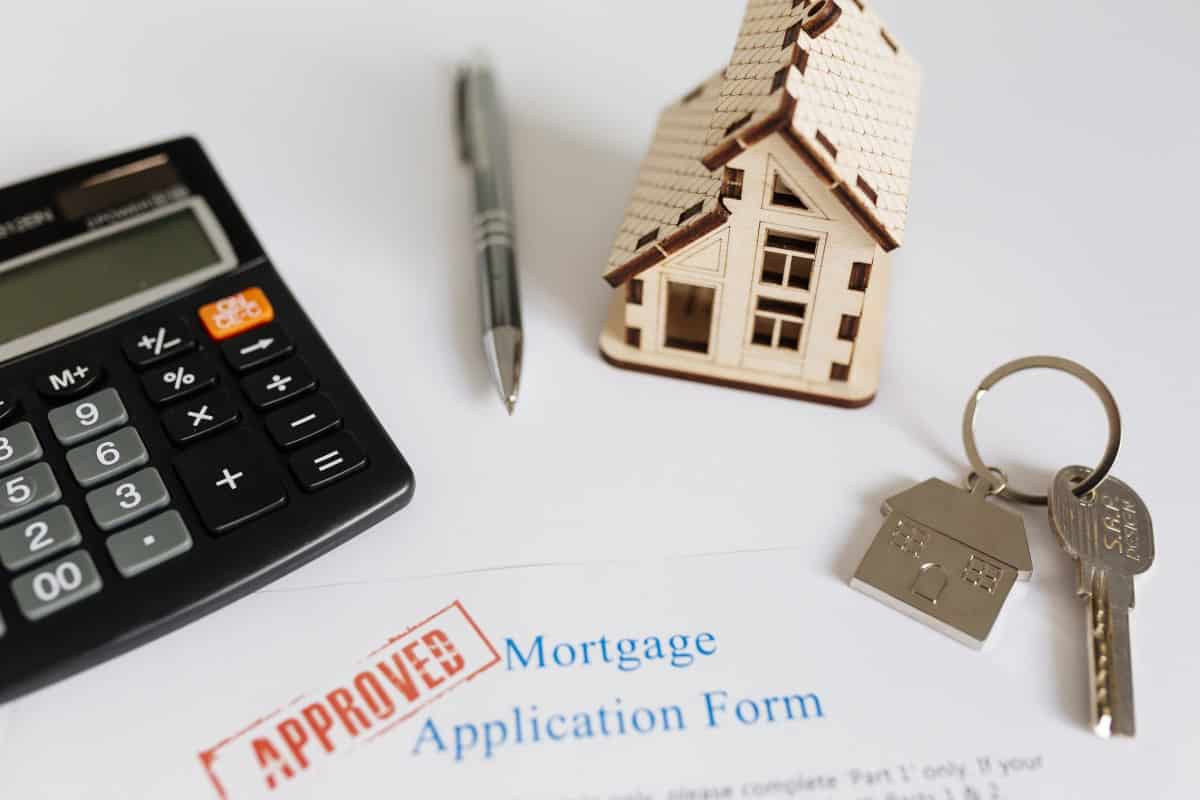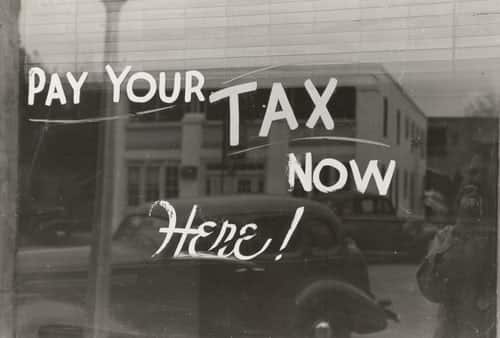Tax consequences of owning a house in the Netherlands

Are you buying a property in the Netherlands? If so, this has consequences for your taxes. For example, you may deduct the mortgage interest.
What is an owner-occupied home?
Your home counts as your own if you meet the following 2 conditions:
- You, your tax partner, or both of you own the home.
- The home is your primary residence.
A rental property or a rented property is not an owner-occupied home.
An own home is also:
- a houseboat with a permanent berth
- a caravan with a permanent location
- a house of which you or your tax partner have the right of ground lease for the land or the right of building
- a house based on a membership of a cooperative flat association
- a dwelling of which you or your tax partner have inherited the right of usufruct, right of occupancy, or right of use.
In that case, you must live in it yourself and pay the costs and charges yourself.
What is part of the owner-occupied home?
A barn, garage or land can also be part of the owner-occupied home. Do you use the home for your business? Then only a part may count as owner-occupied property.
Maximum 1 owner-occupied home
You can only have 1 property as your main residence. Do you have a tax partner? And do you both have your own home? Then you must choose which property you designate as your main residence. For that property you can deduct the interest and you add the notional rental value to the income. The value and any debt of the other property belongs in your tax return in box 3 (savings and investments).
In a number of situations, you can (temporarily) declare more homes as your own. For example, if you have not yet sold your old home, or if you are living permanently separated.
Your owner-occupied home in your annual income tax return
If you own your own home, the (mortgage) interest and certain expenses are deductible, and you must also add an amount to your income.
Deductible: interest and costs
You may deduct certain costs for your home in your income tax return. For example, the interest on the mortgage or loan, the financing costs, and the periodic payments for ground lease, building rights or burial rights.
Adding up: owner-occupied home value and income
Everyone who owns a home must add an amount to his income: the imputed income from owning a home (‘eigenwoningforfait’). This income is calculated based on the so called WOZ value of the house.
In addition, the following can be counted as income from the property:
- income from temporary rental
- income from letting rooms
- the taxed part of a payment from capital insurance or an unlocked savings account or investment right for owner-occupied houses
Which costs are deductible if I buy a house in the Netherlands?
If you own a property in the Netherlands and you use it as your main residence then you may be able to claim some tax deductions. These deductions can be claimed in your tax return. You can also claim a provisional monthly refund. This has to be done every year again.
Conditions for mortgage interest deduction
- You use the mortgage to buy, remodel or improve your home.
- You use the mortgage for the house where you live (or will live). So for example not for a holiday home.
- You repay the mortgage within a maximum of 30 years.
- You repay an amount every year (or every month). This means that you can get mortgage interest relief for a linear or annuity mortgage. But not for a non-repayment mortgage or savings deposit mortgage, unless you already had a mortgage for an own home on January 1, 2013.
- The tax rate at which you may deduct mortgage interest is 43% as of January 1, 2021. This percentage will be further reduced in the coming years. In 2022 to 40% and from 2023 it is 37.10%.
Costs related to the mortgage (or other loan)
The (deductible) costs can be divided in one time only costs and annual costs.
One time only costs
- Notary costs and ‘kadastrale rechten’ for the mortgage deed
- Valuation costs in order to get a mortgage
- Bank commission called ‘afsluitprovisie’ in Dutch. This is normally 1% of the mortgage but can vary between 0% and 1.5%
- Costs related to the National Mortgage Guarantee
- Fine which has to be paid because of early repayment of the old mortgage (when you decided to change mortgage provider)
Annual costs
- Interest paid on a mortgage for a maximum of 30 year
- So called ‘erfpacht’ payments
- Interest paid on other loans used for the main residence
Not deductible (costs related to the property itself)
- Costs of the purchase deed
- Notary costs for the delivery of the property
- The transfer tax
- Repayments of the mortgage
- Costs of maintenance and renovation
- Interest on (part of) the mortgage if it’s not used for the property but just to ‘consume’
Can I deduct the mortgage interest for my main residence if I have the 30% ruling?
If you have the 30% ruling you can deduct the mortgage interest for your principal residence under the standard regulations. So the 30% ruling itself will not affect the possibility to deduct the interest. It is also not relevant whether you have opted for partial non residency for tax purposes either.
The 30% ruling may however affect the actual refund. If your salary falls in a lower tax bracket due to the 30% ruling or due to the combination of the 30% ruling and the mortgage interest deduction, the mortgage interest will be deducted against a lower tax rate which leads to a lower refund for you.
It depends on your specific situation what the effect of the 30% ruling will be.
Is interest from a secondary loan deductible per the mortgage deduction?
Question:
I am about to purchase a property in the Netherlands and as an expat am expected to provide a deposit of 10% of the purchase value. I am doing so by way of a personal loan from my bank in my home country and am hoping that the interest on this loan will also be deductible for tax purposes. Are there rules surrounding the sources of financing entitled to be deducted?
Answer:
Dutch law just states that interest on a loan used to purchase or renovate the main residence is deductible. It doesn‘t say how the loan should be set up. It doesn‘t therefore have to be a mortgage. A mortgage is just a loan with the property as the guarantee. But you can also just get a personal loan from a bank, or a loan from a family member or any other person or organisation.
Just make sure that the loan is arranged for the main residence.
What is the WOZ value of my house?
The WOZ value is the value of your property for tax purposes. This value is assessed every year by your municipality. They send you a statement showing the value and you can request to receive the underlying report.
WOZ values are based on market values. Assessments are carried out in the same way throughout the Netherlands according to strict rules. The WOZ value of a property is based on the building’s characteristics, official valuations, and the selling price of nearby properties.
You can find the WOZ value also on the local property tax assessments. If you don’t have them and you need to know the WOZ value you can contact the local town hall. If you have bought the house during the year the WOZ statement may have been sent to the previous owners in the period they owned the house. You may want to contact them in that situation.
Why is the WOZ important?
The WOZ value is used for certain tax purposes:
1. as a basis for the calculation of the local property tax;
2. to calculate the income related to your property in your income tax return.
Ad 1. Local property tax or real estate tax is known in the Netherlands as ‘onroerende-zaakbelasting’. This tax is paid by the owner of a house.
Ad 2. If you own a property which is your principle residence you must pay tax on the so called deemed rental value (“eigenwoningforfait”) which is based on the WOZ value of the property. This deemed rental value is a percentage of the WOZ value. Due to the deduction of the paid mortgage interest the income related to your principle residence is most of the times a negative amount.
Table eigenwoningforfait 2021
| WOZ value more than | WOZ value not more than | Eigenwoningforfait |
| – | € 12,500 | 0 |
| € 12,500 | € 25,000 | 0.20% |
| € 25,000 | € 50,000 | 0.30% |
| € 50,000 | € 75,000 | 0.40% |
| € 75,000 | € 1,110,000 | 0.50% |
| € 1,110,000 | – | € 5,550 + 2.35% above € 1,110,000 |
Table eigenwoningforfait 2020
| WOZ value more than | WOZ value not more than | Eigenwoningforfait |
| – | € 12,500 | 0 |
| € 12,500 | € 25,000 | 0.20% |
| € 25,000 | € 50,000 | 0.35% |
| € 50,000 | € 75,000 | 0.45% |
| € 75,000 | € 1,090,000 | 0.60% |
| € 1,090,000 | – | € 6,540 + 2.35% above € 1,090,000 |
Temporary assignment or transfer abroad
Is your home vacant because you have been temporarily deployed or transferred? During your deployment or transfer, your home is your own home. You must also add an owner-occupied home tax (‘eigenwoningforfait’) to your income.
The following fixed percentages and amounts apply to temporary assignments or transfers.
2021
| WOZ value | Eigenwoningforfait |
| Not more than € 1,110,000 | 0.80% of WOZ value |
| More than € 1,110,000 | € 8,880 + 2.35% of the WOZ value above € 1,110,000 |
What if I don’t agree with the WOZ value?
If you don’t agree with the WOZ value you should object within 6 weeks after the statement has been issued by the municipality.
What are the tax consequences if I sell my house?
You sell your house with a loss
If you sell your house with a loss, this loss is not tax deductible.
If part of the mortgage can’t be paid back after the sale then the interest on the remaining part of the mortgage is no longer deductible since it is not related to your home anymore.
You sell your house with a profit
If you sell the house with a profit this profit is not taxable either (as long as it is not your business to sell houses. In the Netherlands we don’t have a capital gains tax.
If you buy another home within 3 years after this sale then you are expected to invest the profit in this new home. If you would arrange a mortgage for the full price you would only be able to claim the interest deduction for the mortgage minus the amount of the profit.
Example
The surplus value of your old home is € 40,000 and you buy a new home of € 200,000. Then you may deduct the interest on a loan of up to € 160,000.
Is your mortgage higher? Then you may not deduct the interest on the amount above € 160,000.
I want to buy a property outside the Netherlands. What are the tax consequences?
Question:
I am French, living in the Netherlands and thinking of purchasing a property in France. How will this property be taxed given I am NL domiciled and NL resident (not under 30% ruling). Will the position be different depending on whether I have a mortgage on the property?
Answer:
Since you are living in the Netherlands (and don’t have the 30% ruling) you will have to declare your worldwide savings and investments in your Dutch tax return, so including a property you own in France. However, under the tax treaty between France and the Netherlands the right to tax a property is divided to the country in which the property is located. This means that France will have the first right to tax the property. The Netherlands will offer an exemption to prevent double taxation. This exemption must be claimed in the income tax return. A mortgage will not affect anything since the exemption will also be calculated including the mortgage. So whether or not you have a mortgage the exemption will be calculated the proper way.
Tax treaties which the Netherlands have signed with other countries contain a similar arrrangement. So in principe a property is taxed in the country where it is located.
If you would have the 30% ruling and opt for the partial non residence status you don’t have to declare the foreign property at all.
How is a second home in the Netherlands taxed? It is owned by a non-resident.
Question:
I am thinking of purchasing a property in the Netherlands. I do not intend to rent out the property, simply maintain it for infrequent visits (maybe up to 6 times per year).
How will this property be taxed given that I am UK domiciled and UK resident. Will the position be different depending on whether I have a mortgage on the property?
Answer:
Under the tax treaty between the UK and the Netherlands a property is taxed where it is located. So if you buy a property in the Netherlands then the Netherlands will have the first right to tax this property. The UK will have to offer an exemption to prevent double taxation.
In the Netherlands not the real income from the property is taxed and the related costs are not deductible. Instead the tax is calculated based on the average value of the property minus the outstanding mortgage. Over this amount a deemed income is calculated of a certain percentage (based on the actual savings and investments in the Netherlands) which is taxed at a fixed rate of 30%.
Calculation:
Value property: 200,000
Mortgage: 150,000
Tax: 200,000 -/- 150,000 = 50,000 * 1.898% (figure 2021) * 31% = € 290
So you can see that the mortgage will reduce taxation. If the mortgage is higher than the value of the property no tax has to be paid.
The same answer is applicable if you are living in another country than the UK with which the Netherlands has signed a tax treaty, for example with all the EU countries and dozens of other countries.
Can I help my sister to buy a property in the Netherlands? What are the tax consequences?
Question:
My sister, age 58 years (a widow in receipt of a Dutch pension) lives in Holland in a rental apartment on which she has been paying rent. Recently she told us that she could purchase the property. We wish to help her to purchase it so that she can avoid having to pay rent. Will we have to pay tax ? Will her pension be reduced if she owns the property? What if I purchase the same property and register myself as the owner, do I have to pay tax? I live in Singapore and am a Singapore citizen.
Answer:
You can help your sister to purchase the property. If you lend her the money the interest she pays will be deductible for her and income for you (taxable depending on the tax laws in Singapore). It is advisable to create a loan agreement so that it is clear what is arranged. If you give her the money gift duties will be applicable. This may also be the case if the interest you charge is (much) lower than the average market rate.
Her pension will not be reduced in our opinion.
If you buy the property you will pay tax on the property in the Netherlands based on the value of the property minus the outstanding debt to buy the property. Tax will be a certain percentage of the equity. In that case mortgage interest can’t be deducted.
The same is applicable if you want to help your child, parent or other person to buy a property.





